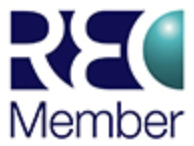Asking questions in an interview is an important part of the process as it shows that you are keen to find out more about the role and the business in which you hope to become an employee of. However asking the wrong questions could be detrimental to you securing the position. Here is a list of questions to avoid;
What type of business is this and who are your competitors?
It is important to conduct a bit of background research about the company you are being interviewed by ahead of your interview as it shows that you have a genuine interest in the business as well as the role you are applying for. Under preparing could lead the employer to believe that you would take the same approach in your work within the company.
What are the hours?
Although this is important for you to know, it’s a question that makes most employers cringe as it looks like you’re a clock-watcher. Managers want to employ someone they feel is hardworking, dedicated to the role and prepared to put in extra hours if the job requires them to do so. This is something to ask once a second interview or job offer has been made. Or, if the interview has been arranged via our team of specialist recruitment consultants for one of our clients, we would usually be able to give candidates this information ahead of going for the interview.
How much is the pay and what are the benefits?
Again, this is something a recruitment agency would know or would usually be highlighted in the job spec so you can decide whether it’s right for you ahead of applying for the job. By asking this question in an interview it could come across that all the applicant cares about is the money and benefits. It’s better to wait until the interviewer brings it up (which does sometimes happen) or when an offer is made.
Can I work from home?
This is a big no-no question to ask in an interview. Working from home is a benefit usually offered to well-established members of staff who have proven to be dedicated to the business and are a solid asset. Wait until you have been within the company a while and establish a relationship with the managers first. If asked in an interview, the employer will be wondering why you are so keen to get out of an office that you haven’t even worked in yet.
What is the average time before moving to the next level?
This question needs to be approached in the correct way. Although ambition is good, you don’t want to come across as an aggressive person who would bulldoze a colleague out of the way to get to the top. A better way to pose this question would be “If I were to be offered the position, once established within the role I’m applying for and achieving my set goals is there a career progression structure in place to help me grow with the company?” This shows that you are committed to doing a good job at the current level but that you are also thinking of being with the company long term, which an employer will find an admirable quality.
How much help will I get?
This is never a good question to ask in an interview, as it comes across that you are unconfident in the role you are applying for. You could perhaps ask instead, whether you report to a line manager or whether there is an employee review system in place.
How do you think I did?
Although you want to know how you got on, asking this question is very unprofessional. It is a question that we, as a recruitment consultancy, would ask on your behalf and would be able to feedback both positive and negative comments. If you were to be unsuccessful we would then be able to offer you tips and advice on how you can improve your interview technique for next time.


